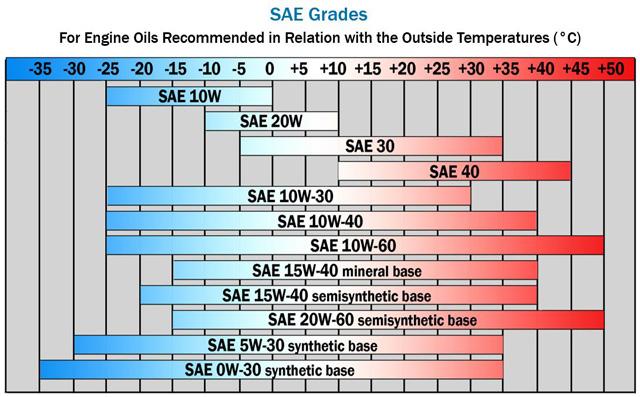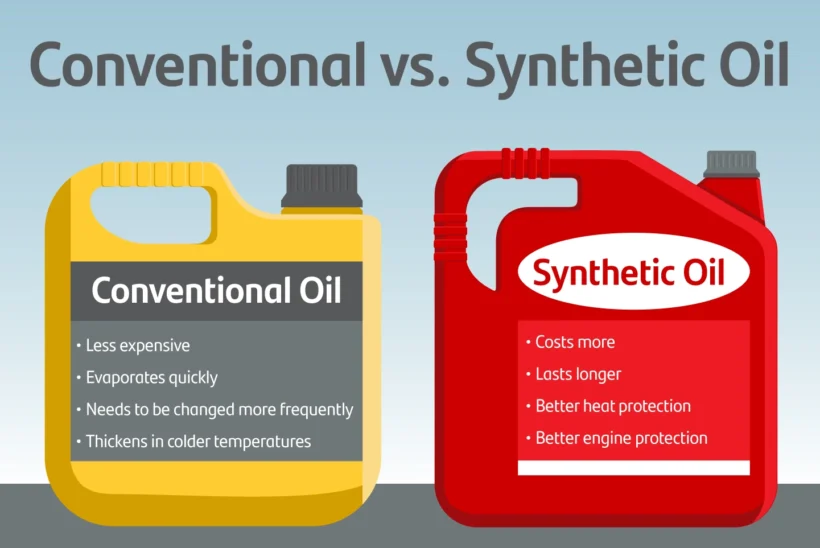Oil plays a crucial role in lubricating your car’s engine to reduce heat from friction and keep things moving smoothly. But how do the different types of motor oil differ? And how do you know which is best for your vehicle?
Mixing conventional oil with synthetic oil can be beneficial for certain engines, as it can increase the lifespan of an engine and reduce wear over time. The two types of oils have different benefits, which means combining them in the right way may help boost engine performance.
This can be a great way to maximize engine performance and reduce wear over time. However, it’s important to make sure you use the right proportions of each type of oil and use an oil filter that’s designed for the type of oil you’re using. By ensuring these steps are taken, you can help your engine stay in top condition and reduce the likelihood of wear over time.
It’s usually recommended that you stick with a 50/50 mix, or blended oil, as this provides the greatest benefit while avoiding any potential problems. You should also make sure you use an oil filter that’s designed for the type of oil you’re using. This will help keep contaminants out of your engine.
Oil Ratings

Motor oil comes in a variety of grades and varieties, ranging from mineral oils to synthetic blends and more. Each has its own set of specifications and ratings that indicate how well the oil can handle specific engine requirements.
The American Petroleum Institute, or API, assigns motor oil grades according to a series of tests. These tests are designed to assess a variety of performance criteria, such as wear protection, high-temperature oxidation stability and resistance to foaming. The oil grade is indicated by an alphabetic character followed by a number. “SA” indicates oils for gasoline-powered engines, while “CD” indicates oils for diesel-powered engines. The higher the number following the letter, the better the oil’s performance.
The Society of Automotive Engineers, or SAE, also grades motor oils using a viscosity rating system. This system measures how well an oil will flow at different temperatures and is indicated by a two-digit number. The lower the first digit, the thinner and more volatile the oil is; the higher the second digit, the more viscous and resistant to heat it is.
Oil Viscosity

Viscosity describes how resistant an oil is to flow. For example, highly viscous motor oil is more like molasses, whereas oil with a low viscosity is more like water.
Mechanics use two codes to rate oil viscosity – the first precedes the letter ‘W’ and denotes how well the oil flows at 0 degrees Fahrenheit. The lower this number is, the less likely the oil is to thicken when temperatures drop.
The second code follows the ‘W’ and denotes how well the oil flows at 212 degrees Fahrenheit. The lower this number is, the more likely the oil will thin when temperatures rise.
The performance of each oil type will decline over time as the oil quality degrades, which is why it is necessary to keep up with oil changes.
For most modern engines, a multi-grade motor oil is recommended—these blends offer both low and high viscosity protection in one formula. Some older engines may require single grade oils, which provide only high or low viscosity protection depending on the type of oil used.
Choosing the right motor oil for your vehicle is essential to ensure that your engine runs smoothly and efficiently. Be sure to consult your owner’s manual or an automotive professional for the oil viscosity requirement of your engine. Doing so will help you enjoy better fuel efficiency, improved performance, and extended engine life.
Oil Quality
Oil quality is measured based on a range of features. High-quality oil protects a vehicle’s engine, ensures better fuel economy, and protects the vehicle’s emission system. Better quality oil can help protect your vehicle for a longer period of time, which can help reduce maintenance costs overtime.
Conventional Oil
Conventional oil comes in various grades and viscosities, and mechanics frequently recommend it for conservative drivers and vehicles with simple engine designs. It’s also known as a mineral-based oil. It contains naturally occurring substances like sulfur and phosphorus, as well as additives to help protect the engine from wear and tear. Synthetic oil is a man-made product that’s designed to perform better than conventional oils in certain scenarios. It usually has fewer impurities, which allows it to flow more easily and stay fluid at lower temperatures.
Mixing conventional oil with synthetic oil can bring together their respective benefits and help protect your engine from wear over time. Synthetic oil can provide better protection in extreme temperature conditions, while conventional oil helps to lubricate parts more quickly in cold weather. This is especially important for older engines that may not be able to handle.
There is also a subcategory of conventional motor oil called high-mileage oil. High-mileage oil is an oil designed for newer vehicles. Additives in this oil reduce oil burn-off and lower the risk of oil leaks.
Synthetic Oil
Synthetic motor oil is a purer motor oil manufactured to function optimally in more extreme temperatures.
Blended Oil
A blended oil is a mix of synthetic and conventional motor oil. Synthetic mixed oil helps cars to function better in colder temperatures. Blended oil also allows vehicles to get better gas mileage and protects against some degree of oxidation.
Why Use Blended Oil?
Drivers that carry increased loads prefer blended oil mixes – for example, pickup trucks with a full bed. For the most part, however, drivers prefer to use blended oil because it offers some of the benefits of synthetic oil without the price tag that comes with it. On average, blended motor oil costs $1 more per quart than conventional oil. Synthetic motor oil, however, costs twice that of conventional oil.
Conclusion

Deciding which oil type is best for your vehicle is often a personal choice. The general rule of thumb is that synthetic motor oil is best for vehicles that function in extreme temperatures, blended motor oil is best for those carrying heavier loads, and conventional motor oil is a fine choice for the average car or truck.

